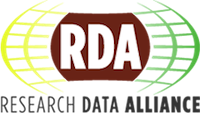RDA/IGAD Webinar Series: COPO: Extending the Frontiers of “FAIR” Data in Agriculture set for February 12

As part of the Research Data Alliance's (RDA)/ Agricultural Data Interest Group's (IGAD) ongoing webinar series, aimed to keep up with cutting edge developments in agricultural data, and encourage the free flow of ideas, the next webinar is set to take place on February 12 at 11 a.m. CET.
The webinar will focus on Collaborative Open Plant Omics (COPO): Extending the frontiers of “FAIR” Data in Agriculture and will feature Anthony Etuk, Research Software Engineer of the Davey Group, Earlham Institute, Norwich, United Kingdom.

Background:
Modern scientific advances are increasingly reliant on data. In the agricultural sector, much of today’s research and innovation are driven by the integration of ever-increasing amounts of heterogeneous data from disparate sources. Whereas the awareness of the FAIR principles for Findable, Accessible, Interoperable and Reusable data has increased, challenges still exist to implement these principles for storing, managing, analysing and distributing data.
Webinar:
Throughout the webinar, learn more about the Collaborative Open Plant Omics (COPO), which is a system that attempts to address some of these challenges by enabling scientists to describe their data and research objects using community-sanctioned metadata, and then use public or institutional repositories to share it with the wider scientific community. Data generators are encouraged to use rich semantic metadata when publishing research objects, thus allowing data consumers and tools to find, aggregate, and analyse data which was previously invisible or not shared at all.
COPO supports a number of data standards or schemas including the CG Core 2.0 schema (https://agriculturalsemantics.github.io/cg-core/cgcore.html), implemented for use by CGIAR centres. CG Core 2.0 is a schema produced by the CGIAR Big Data Platform to collect information on socio-agronomic studies, thus harmonising data input between CGIAR centres. These centres store their data on locally hosted, publicly accessible digital repositories based on one of three repository software types, i.e. Dataverse, dSpace or CKAN. COPO user interface wizards allow metadata to be added to research objects (e.g., datafiles) with guided help and natural workflows. Metadata can be suggested, that might be appropriate for data based on past submissions and similar workflows.
By building upon existing standards to push the state of the art in agricultural data dissemination and mining, COPO seeks to ease the burden of sharing and reusing data by the community. COPO is entirely open source and is freely available on GitHub.
Register here.
Speaker’s Bio:

Anthony Etuk (Toni) joined the Earlham Institute in February 2015 as a Research Software Engineer on the Collaborative Open Plant Omics' (COPO) project, a platform for plant scientists to describe, deposit and retrieve data more easily.
Toni completed his PhD in Computer Science at the University of Aberdeen. His area of interest was multi-agent systems, with a focus on computational models of trust and reputation. In particular, he investigated how these techniques could be inexpensively applied to support decision-making in distributed environments, such as crowdsourcing, peer-to-peer networks, pervasive computing, and sensor networks. He continues to explore these techniques, and a number of techniques from Machine Learning and statistics, in contexts of Open Science and Bioinformatics.

